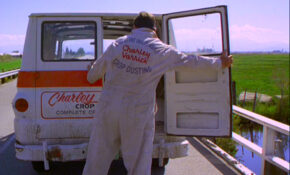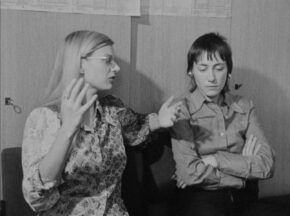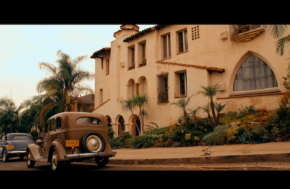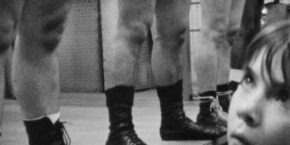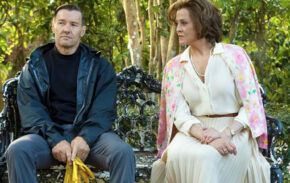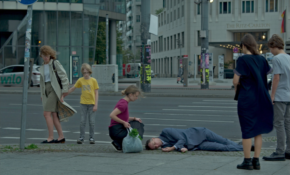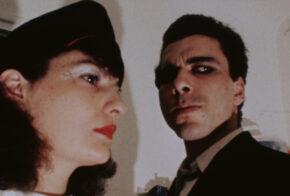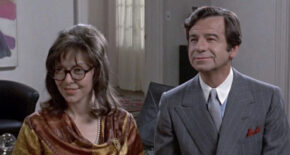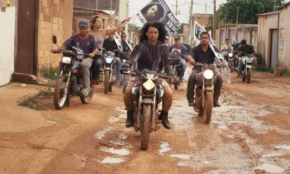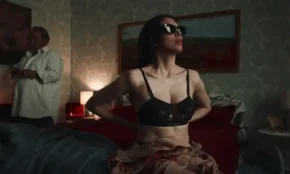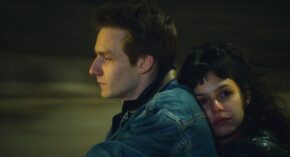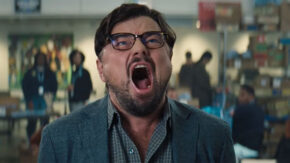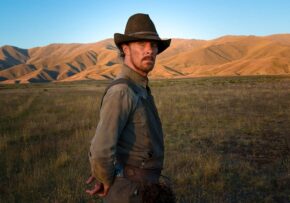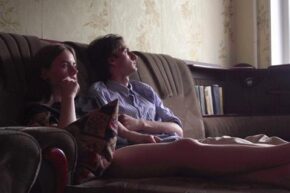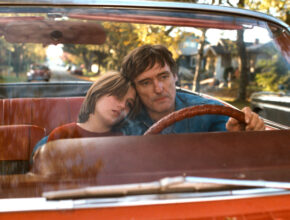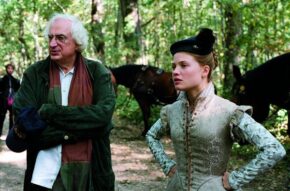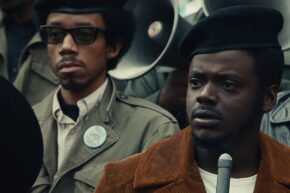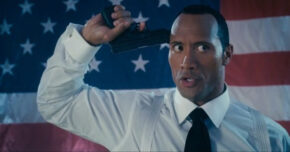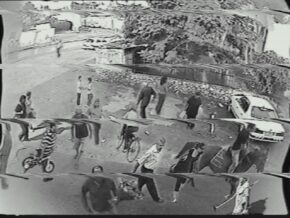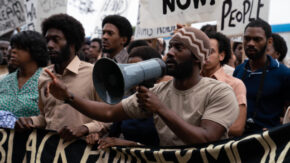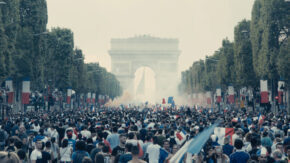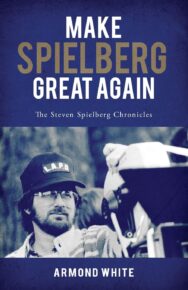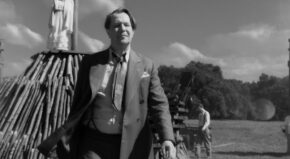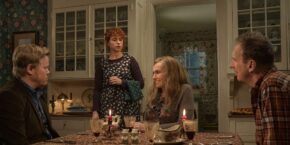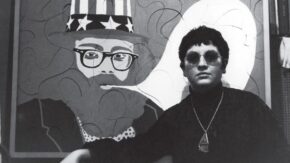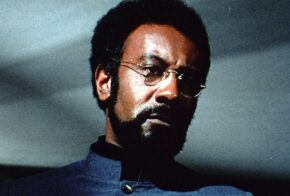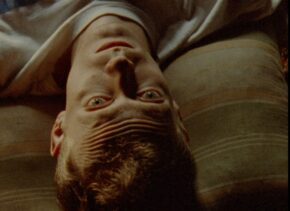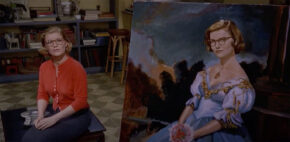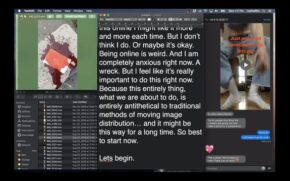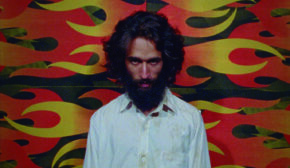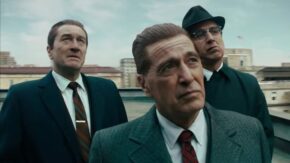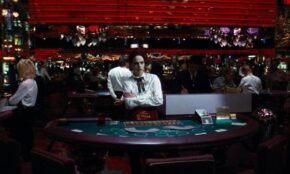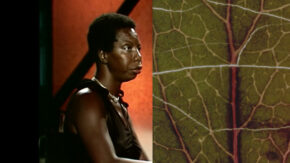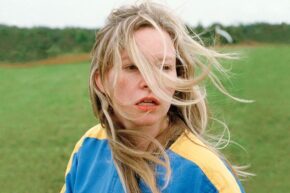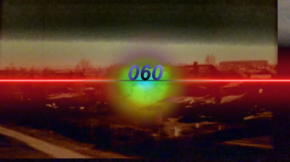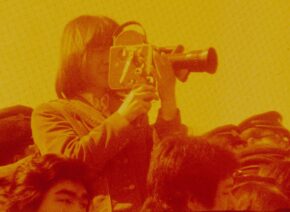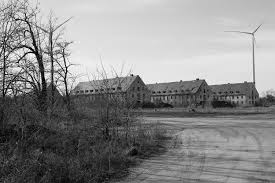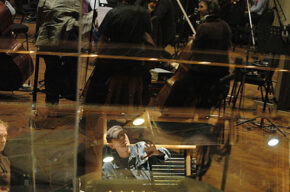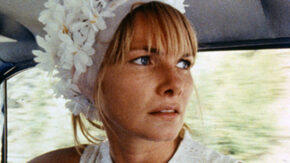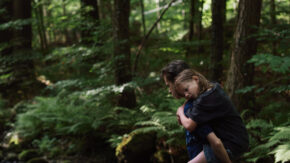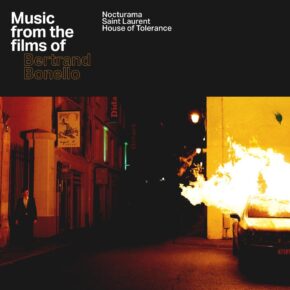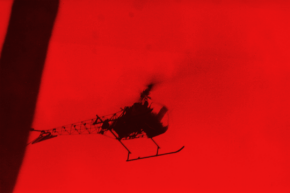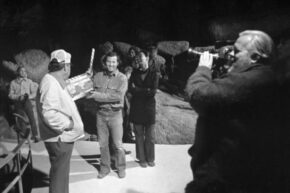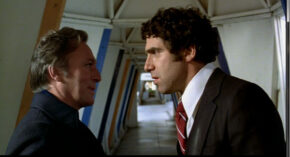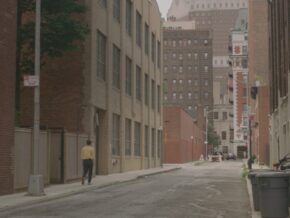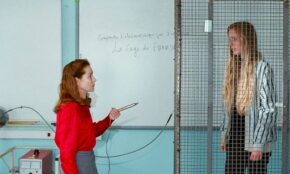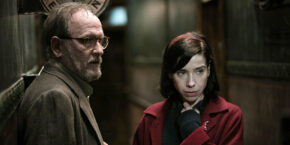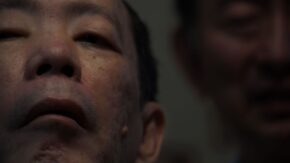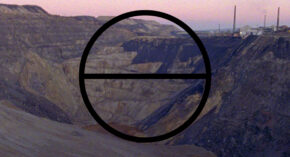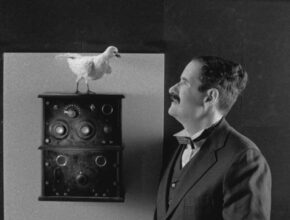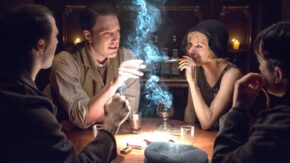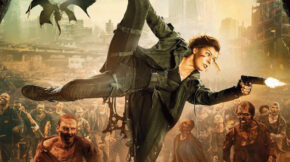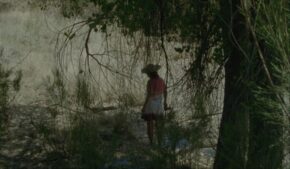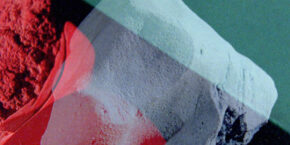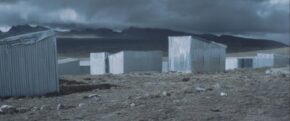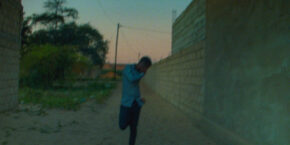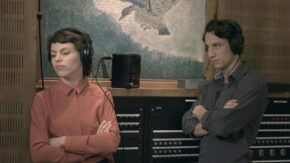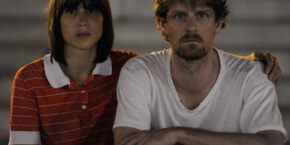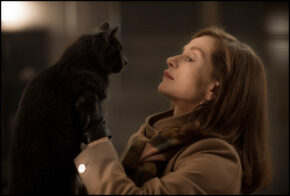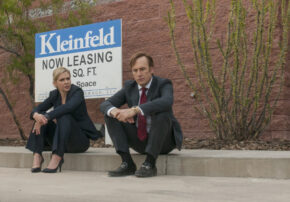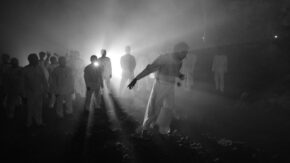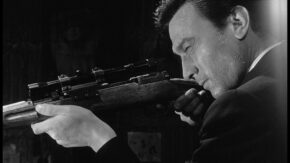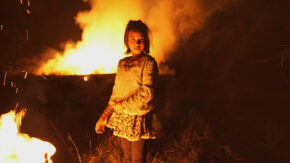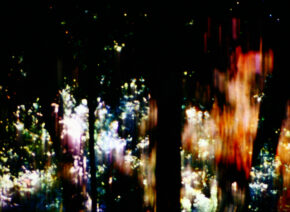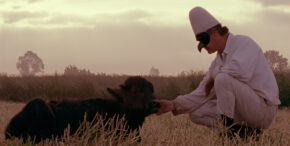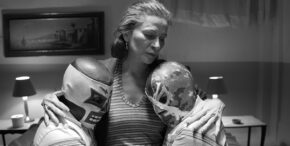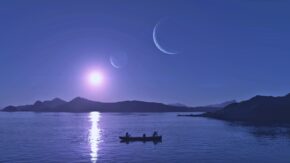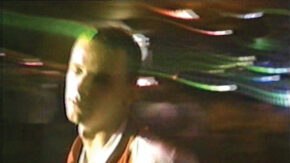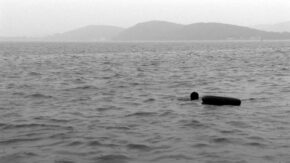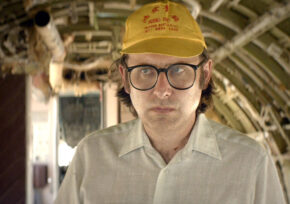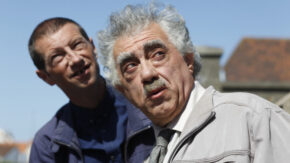Features
Last of the Independents: A Roundtable on “Charley Varrick” with Veronika Franz and Severin Fiala
By Christoph Huber | 01/18/2024 | CS97, Features, From Cinema Scope Magazine
Don Siegel’s superior crime picture Charley Varrick (1973) was supposed to be called Last of the Independents, but that title was nixed by Universal honcho Lew Wasserman. This probably gives even more credence to the subversive, stick-it-to-the-system notion nestled inside this tale of a crop-duster pilot who has resorted to small-scale robbery for a living because he can no longer compete against the capitalist monopoly in his legal job.
Read More → Deep Cuts: The First International Women’s Film Seminar
By Erika Balsom | 01/18/2024 | CS97, Features, From Cinema Scope Magazine
Lately it feels like everywhere I look obscure old films are being dusted off and presented to eager publics. Even a right-wing newspaper like London’s Telegraph had cause last November to speak of a “repertory boom” in the city where I live, deeming it “the year’s most unlikely media trend.” Their idea of what this looks like is a bit different than mine; not everyone is “suddenly” lining up to see Kind Hearts and Coronets (1949).
Read More → Open Source: Some Films by Ross Meckfessel
By Phil Coldiron | 01/18/2024 | CS97, Features, From Cinema Scope Magazine
It requires relatively little mental strain to imagine a world in which all that can be photographed has been; it requires, I think, considerably more to imagine one in which every possible photograph has been made. I find that both of these little thought experiments imply comic narratives—that is, to borrow a definition, ones which resolve in favour of their protagonists. And who might these protagonists be?
Read More → Film Tourists in Los Angeles
By Thom Andersen | 01/18/2024 | CS97, Features, From Cinema Scope Magazine
The directors who did the most to make Los Angeles a character in movies and then a subject were outsiders, like Wim Wenders and Billy Wilder, or tourists, like Antonioni. They weren’t interested in what made Los Angeles like a city; they were interested in what made Los Angeles unlike the cities they knew.
Read More → TIFF 2023 | Chantal Akerman: Her First Look Behind the Camera (Chantal Akerman, Belgium) — Wavelengths
By Kate Rennebohm | 09/05/2023 | Cinema Scope Online, CS96, Features, From Cinema Scope Magazine, TIFF 2023
The Fondation Chantal Akerman and Cinematek, the Royal Film Archive of Belgium, have made available a remarkable find: four early shorts by the Belgian-born filmmaker, produced in 1967 when she was only 17 years old, which are now being exhibited under the program title Chantal Akerman: Her First Look Behind the Camera.
Read More → Back to Zero: The Experimental Cinema of Jean Eustache
By Michael Sicinski | 06/20/2023 | CS95, Features, From Cinema Scope Magazine
When a filmmaker’s body of work starts doing the rounds of the cinematheques and museums, it provides an opportunity for re-evaluation or discovery. Even for those of us who are familiar with the cinema of Jean Eustache, the current retrospective, which screens this summer at TIFF Cinematheque and other North American venues, is a substantial reminder that there’s a lot we still don’t know about this singular director.
Read More → Master at Work: Paul Schrader on “Master Gardener”
By Will Sloan | 06/20/2023 | CS95, Features, From Cinema Scope Magazine, Interviews
Paul Schrader’s career has been eclectic enough to encompass biopics of Mishima Yukio, Bob Crane, and Patricia Hearst; adaptations of books by Ian McEwan, Russell Banks, and Nikos Kazantzakis; genre films that meet the expectations of the horror, thriller, and romance forms; and star vehicles tailored to bring out the best in icons as disparate at Richard Pryor, Richard Gere, George C. Scott, and Lindsay Lohan.
Read More → After Tragedy: On Angela Schanelec’s <em>Music</em>
By Phil Coldiron | 03/24/2023 | CS94, Features, From Cinema Scope Magazine
The film’s promotional material refers to it as “freely inspired by the myth of Oedipus,” and so it is. Compared with the incidental narrative constructions of the prior two films, this ordering use of myth ensures that however opaque an event may seem in the moment, its place in the logic of the story is equally present, rather than graspable only upon reflection.
Read More → Aether/Ore: Post-Humanism in Deborah Stratman’s <em>Last Things</em>
By Michael Sicinski | 03/24/2023 | CS94, Features, From Cinema Scope Magazine
Last Things, the latest work from Deborah Stratman, participates in a small but growing trend in experimental filmmaking. Following certain tendencies in contemporary philosophy, Last Things attempts to communicate a radically non-anthropocentric view of existence.
Read More → Against Interest: Pierre Clémenti, Filmmaker
By Phil Coldiron | 01/10/2023 | CS93, Features, From Cinema Scope Magazine
We are moved by films because, briefly, deeply, they convince us that the past isn’t irretrievable, that life isn’t forever slipping away. But in his usual manner, Clémenti immediately complicates this, narrowing the perspective to an actor’s: “And at the very moment you’re playing the part, you become the person who will one day look back at yourself.”
Read More → Telling the Truth Can Be Dangerous Business: The Overdue Enshrinement of Elaine May
By Christoph Huber | 09/26/2022 | CS92, Features, From Cinema Scope Magazine, TV
It’s not as if Elaine May wasn’t a beloved figure in American popular culture for most of her life. Her successful pairing with Mike Nichols as an innovative improv comedy team in the late ’50s may have been short-lived—the duo broke up at the height of their success in 1961—but is regularly cited as one of the most influential and well-remembered comedy acts the US has ever known.
Read More → Can the Centre Hold?: The Films of Adirley Queirós
By James Lattimer | 09/26/2022 | CS92, Features, From Cinema Scope Magazine
The periphery is always the centre in the films of Adirley Queirós, whether in terms of the people and places at the focus of his attention or the off-centre stylistic means he employs to explore their tribulations, and, by extension, those of Brazil.
Read More → Endless Night: “Dark Glasses” and the Remnants of Dario Argento’s Mad Poetry of Terror
By Christoph Huber | 06/21/2022 | CS91, Features, From Cinema Scope Magazine
Everybody is staring into the sky, wearing special glasses or holding up black strips to protect their eyes. She stops at a park, joining a small group of people, putting on her sunglasses. Dogs bark as the light dims—they are awaiting a solar eclipse. “Not just dogs, every animal is afraid,” a man explains to his kid. “Even our ancestors, a long time ago, feared the eclipse.” His wife adds, “They thought the disappearance of the sun meant the end of the world.”
Read More → Waking Dreams: On the Films of Mikhaël Hers
By Lawrence Garcia | 03/21/2022 | CS90, Features, From Cinema Scope Magazine
In all art there seems to be some principle of recurrence related to the repetitions of nature that conditions our sense of time—not just the passage of the seasons, but also the cycles of light and darkness, of waking and sleeping life. The films of Mikhaël Hers are no exception, though as with most any artist, he has his predilections.
Read More → Don’t Look Now: The Righteous Evolution of Adam McKay
By Angelo Muredda | 03/21/2022 | CS90, Features, From Cinema Scope Magazine
he room,” Adam McKay played the more comfortable role of American comedy’s slouchy, politically savvy older brother. Improbable as his progressive-daddy glow up of the past few years might seem, the Upright Citizens Brigade co-founder, former Saturday Night Live head writer, and Academy Award-winning writer-director planted the seed of his transformation early in his predominantly unserious comedy fare.
Read More → Higher Power: Paul Verhoeven’s Benedetta and the Legacy of Nunsploitation
By Christoph Huber | 01/04/2022 | CS89, Features, From Cinema Scope Magazine
The pear of anguish is a medieval torture instrument, whose spoon-like metal segments spread at the turn of a screw in its centre. Also known as the “choke pear” because it was often applied to the victim’s mouth, it could be inserted into any orifice.
Read More → Too Good at Goodbyes: The Souvenir Part II and Joanna Hogg’s Cinema of Memory
By Katherine Connell | 01/04/2022 | CS89, Features, From Cinema Scope Magazine
By Katherine Connell Joanna Hogg chases authenticity. Her reluctance to call “Cut,” instead letting a scene’s action carry on via languid takes, static camerawork, and unscripted dialogue, reflects her intuitive sense of how small but telling slips within the typically dull cadences of British upper-middle-class social chatter can reveal roiling undercurrents of feeling. Yet while…
Read More → The Flower and the Braided Rope: Jane Campion’s The Power of the Dog
By Michael Sicinski | 01/04/2022 | CS89, Features, From Cinema Scope Magazine
By Michael Sicinski Formalist though I may be, it’s becoming increasingly difficult to separate any given film from its association with Netflix. This is especially the case during awards season, as Netflix is throwing away obscene amounts of money on tacky gift boxes for critics and Academy members. The lavishly illustrated catalogues that depict every…
Read More → In a Year of Six Kostrovs
By Christopher Small | 01/04/2022 | CS89, Features, From Cinema Scope Magazine
“The fact that at one time there was a camera in front of some people, which made them act in a certain way, and everything they may have thought or said or done at that time no longer has any importance. It is dead and gone; the only thing that counts is what remains, and what remains is a crystallization of it…It’s the moment when you pass from the stage of raw recorded reality into the dimensions of a film..."
Read More → Trouble Up North: Dennis Hopper’s Out of the Blue
By Kate Rennebohm | 09/20/2021 | CS88, Features, From Cinema Scope Magazine
While parental absence is a key trope of so many of the Spielberg(ian) youth films of 1980s Hollywood cinema—not only E.T. (1982), but also The Outsiders (1983), Explorers (1985), The Goonies (1985), Stand by Me (1986), The Monster Squad (1987), et al.—the aloneness of the young protagonists is always more a matter of narrative pretext than actual subject.
Read More → To Sir, with Love: Maria Speth’s Mr. Bachmann and His Class
By Michael Sicinski | 09/20/2021 | CS88, Features, From Cinema Scope Magazine
way through uncertain, liminal spaces. At the same time, the documentary marks a sharp turn in Speth’s filmmaking approach, something all the more notable given the remarkable consistency of her first four films.
Read More → Remembering Women: Claudia von Alemann’s Blind Spot
By Erika Balsom | 06/15/2021 | CS87, Features, From Cinema Scope Magazine
Cherchez la femme, they say. It sounds nice, but what this expression actually means is that woman is the root of all (male) problems, always to blame. Claudia von Alemann’s extraordinary Blind Spot (Die Reise nach Lyon, 1980), recently restored by the Deutsche Kinemathek in cooperation with the Institut Lumière, is a rare film that puts the pursuit of a woman at its heart—not so that she can be punished, not so that a man’s troubles can be explained, but so that her achievements might be rescued from oblivion and might, in the process, change another woman’s life.
Read More → Common Sense Connoisseur: The Critical Legacy of Bertrand Tavernier
By Christoph Huber | 06/15/2021 | CS87, Features, From Cinema Scope Magazine
The two most cherished film books in the pile on my bedside table are in a language my command of which is rudimentary at best. But since both Jacques Lourcelles’ Dictionnaire du Cinéma – Les Films as well as Jean-Pierre Coursodon and Bertrand Tavernier’s 50 ans de cinéma américain have never been translated from French into either English or German, I gladly make do, filling the gaps with a mixture of autodidactic guesswork and occasional dictionary consultation, which for all its drawbacks has proved to be a viable method.
Read More → “I prefer, where truth is important, to write fiction:” On Radu Jude
By Phil Coldiron | 06/15/2021 | CS87, Features, From Cinema Scope Magazine
In the name of the popular, delighting in reduction and obviousness, a boring assertion: the common ground of every film movement christened a “new wave” over the last 70 years has tended toward revision, a self-conscious desire to provide a true image of the people in opposition to the distorted picture given by whatever relevant iterations of official culture. The banality of this claim can be measured by the volume of cant and platitude produced in support of it, often by the artists themselves. There is, I hope, little need to rehearse these arguments regarding realism, myth, and so on. Who today can help but squirm when faced with the phrase “true image of the people?”
Read More → Brief Encounters: Hamaguchi Ryusuke’s Wheel of Fortune and Fantasy
By Beatrice Loayza | 06/15/2021 | CS87, Features, From Cinema Scope Magazine
Sprawling, intimate conversations are crucial in the dialogue-driven films of Hamaguchi Ryusuke, but that which remains concealed—simmering behind a strategic facade, sheepish deception, or playful pretense—can be just as revealing. Consider the pivotal dinner conversation that takes place after a communication workshop in the 317-minute Happy Hour (2015), when Jun (Kawamura Rira) suddenly discloses the shocking news of her upcoming divorce trial and owns up to her infidelity to her callous husband
Read More → Gag Orders: The Trial of the Chicago 7 and Judas and the Black Messiah
By Andrew Tracy | 04/05/2021 | CS86, Features, From Cinema Scope Magazine
Bobby Seale makes a cameo of sorts midway through Judas and the Black Messiah, as Martin Sheen’s porcine J. Edgar Hoover—checking in personally on the progress of the FBI’s campaign against Chicago Black Panther Party chairman Fred Hampton (Daniel Kaluuya)—is shown an artist’s sketch of the BPP’s national chairman gagged and shackled in the courtroom during the Chicago Conspiracy Trial. This revolting spectacle understandably serves as the mid-film dramatic highpoint of The Trial of the Chicago 7, when the repeated, suitably indignant demands by Seale (Yahya Abdul-Mateen II) to serve as his own defense counsel in the absence of his hospitalized lawyer—and presiding judge Julius Hoffman’s (Frank Langella) incredible refusal to grant this right, instead directing that Seale’s defense should be undertaken by the representatives for the other defendants—ultimately lead to him being bodily removed from the courtroom by marshals and returned in chains. That image of a defiant Black man, forcibly silenced and immobilized in a hall of American justice, became one of William Burroughs’ “frozen moment[s] at the end of the newspaper fork,” when everyone—including those who would applaud it—can see what they’re being fed.
Read More → Journey to the Centre of the Earth: Fern Silva’s Itinerary
By Michael Sicinski | 03/25/2021 | CS86, Features, From Cinema Scope Magazine
Fern Silva’s films cannot be described as ethnography, personal/mythopoeic film, or essay filmmaking, although they often partake of all of those modes. Though his films are rooted in particular places and cultural spheres, they assiduously avoid the rhetorical or declarative traps of typical nonfiction filmmaking. Instead, they envelop the viewer in a diffuse but concrete ambiance, conveying the palpability of land and water, the weight of the air surrounding hills and trees. They represent a doubled physicality—the world as unavoidably there, inseparable from the cinematic substrate of 16mm filmmaking itself—and the result is a hybridized form of documentary “fiction,” in the classical Latin sense. Silva’s films are made, formed in the interface between reality and those human and mechanical processes that bring it into being.
Read More → Modern Mabuse: On Richard Kelly’s Southland Tales
By Josh Cabrita | 03/25/2021 | CS86, Features, From Cinema Scope Magazine
I suppose now is the time to justify why I thought it worthwhile to begin a piece on Richard Kelly’s Southland Tales (2006), whose Cannes cut has recently been released for the first time on home video courtesy of Arrow, with this exegesis of Lang’s final film. It’s not just that both Thousand Eyes and Southland Tales involve obscure conspiracy plots, take place in highly controlled and policed societies (the post-Nazi German surveillance state and the post-Patriot Act US, respectively), or examine complex information and transportation systems.
Read More → I Thought I Was Seeing Palestinians: On Kamal Aljafari
By Kaleem Hawa | 01/06/2021 | CS85, Features, From Cinema Scope Magazine
By Kaleem Hawa At the end of Kamal Aljafari’s latest film, An Unusual Summer, the Palestinian filmmaker recalls a memory from his childhood, centred on the communal garden outside of his home in the city of Ramlah, a 30-minute drive southeast of Tel Aviv: As a child I spent summerclimbing the fig treefilling straw baskets…
Read More → The Play for Tomorrow: Steve McQueen’s Small Axe
By Michael Sicinski | 12/22/2020 | CS85, Features, From Cinema Scope Magazine
By Michael Sicinski One of the best known of Steve McQueen’s early video works is Deadpan (1997), a four-minute, 35-second loop in which the artist simultaneously places himself in harm’s way and in film history. The piece is a recreation of the famous Buster Keaton stunt from Steamboat Bill, Jr. (1928) in which the façade…
Read More → The Crowd Is Dead, Long Live the Crowd!
By Erika Balsom | 12/22/2020 | CS85, Features, From Cinema Scope Magazine
By Erika Balsom for RMC 1. It was a total coincidence and yet it felt freighted with meaning: when I returned to the cinema at the end of August after months of suffering with the small screen, the first two films I saw began with crowd scenes. The streets of London were eerily empty as…
Read More → All the Fountains of the Great Deep: Artavazd Pelechian’s La Nature
By Phil Coldiron | 12/22/2020 | CS85, Features, From Cinema Scope Magazine
By Phil Coldiron Artists who write clearly about their work run a serious risk: that they will be taken at their word. In much of contemporary art this dynamic has descended to the point that the work, the sensuous object, functions as little more than an illustration of the artist’s statement, a vestigial offering to…
Read More → Minority Report: Armond White Wants to Make Spielberg Great Again
By Adam Nayman | 12/22/2020 | CS85, Features, From Cinema Scope Magazine
By Adam Nayman The “About the Author” section of Armond White’s new critical anthology does not disappoint. In the space of four short paragraphs, White is identified as “esteemed, controversial and brilliantly independent” as well as “The Last Honest Film Critic in America”; his résumé comprises “auspicious tomes” that are “essential for anyone who loves…
Read More → F for Fake: Mank
By Andrew Tracy | 12/22/2020 | CS85, Features, From Cinema Scope Magazine
By Andrew Tracy “I am very happy to accept this award in the spirit in which the screenplay was written—which is to say, in the absence of Orson Welles,” snarks Gary Oldman’s Herman Mankiewicz in the recreated newsreel that caps off Mank, as he receives the Best Screenplay Oscar he acrimoniously shared with Welles for…
Read More → I Lost It at the Movies: Charlie Kaufman’s Antkind and I’m Thinking of Ending Things
By Adam Nayman | 09/22/2020 | CS84, Features, From Cinema Scope Magazine
“It’s all planned, but it isn’t thought out,” wrote Pauline Kael in her review of A Woman Under the Influence (1974), a nifty bit of critical jiu-jitsu turning John Cassavetes’ much-theorized—and, during Kael’s reign at The New Yorker, much-derided—technique of spontaneous improvisation within a dramatic framework against him.
Read More → Open Ticket: The Long, Strange Trip of Ulrike Ottinger
By Michael Sicinski | 09/22/2020 | CS84, Features, From Cinema Scope Magazine
One of the most surprising things about Ulrike Ottinger’s new documentary Paris Calligrammes is how accessible it is. Some cinephiles may be familiar with Ottinger based on an 11-year period of mostly fictional productions that were adjacent to the New German Cinema but, for various reasons, were never entirely subsumed within that rubric. Others are quite possibly more aware of her later work in documentary, in particular her commitment to a radical form of experimental ethnographic cinema.
Read More → A Pierce of the Action: On Claudine and Uptight
By Andrew Tracy | 09/22/2020 | CS84, Features, From Cinema Scope Magazine
By Andrew Tracy In his Camera Lucida, Roland Barthes identified two elements at work in the act of viewing photographs. On one level was what he labelled the studium, which he defines as a sympathetic interest on the part of the viewer, “a kind of general, enthusiastic commitment, but without special acuity…To recognize the studium…
Read More → The Home and the World: Three Films by Ruchir Joshi
By Jesse Cumming | 09/22/2020 | CS84, Features, From Cinema Scope Magazine
In a recent article published in advance of the restoration and rerelease of his work, filmmaker and writer Ruchir Joshi detailed the context for creative Indian documentary in the late ’80s, just as he was developing his practice:
Independent documentary makers tended to attempt only two or three kinds of non-fiction films: Films commissioned by NGOs, “activist” films around a social or political issue about which the filmmaker felt passionately, and films to do with culture, usually traditional craft or performance.
Chums at Midnight: On Hopper/Welles
By Alex Ross Perry | 09/22/2020 | CS84, Features, From Cinema Scope Magazine
Presented as a “new” documentary of which Orson Welles is the credited director, Hopper/Welles is at once less and more than whatever would accurately befit that pithy description.
Read More → In Search of the Female Gaze
By Erika Balsom | 06/23/2020 | CS83, Features, From Cinema Scope Magazine
The trope of a woman removing her glasses to suddenly reveal her great beauty is as familiar as it is eye-roll-inducing. She never looks that different, but her status as an erotic object changes immediately and immensely. A classic example is Dorothy Malone as a bookstore clerk in The Big Sleep (1946), but more recently there is Rachel Leigh Cook descending the stairs to the saccharine sounds of “Kiss Me” in She’s All That (1999). Give up your active gaze, this convention seems to say, and you will be alluring.
Read More → Live(stream) and In Person: Watching Zia Anger’s My First Film in the Age of Quarantine
By Jessica McGoff | 06/23/2020 | CS83, Features, From Cinema Scope Magazine
Zia Anger’s My First Film is a lot of things: a cinema-performance art hybrid, a confrontation with traditional modes of film production and distribution, a radical reclamation of the narrative regarding what it means to be a female artist, and, now, a livestream rather than a live performance.
Read More → Impresión de un cineasta: On the Films of Camilo Restrepo
By Jay Kuehner | 03/20/2020 | CS82, Features, From Cinema Scope Magazine
The title of Camilo Restrepo’s breakout short film, Impressions of a War (2015), suggests the anomalies inherent in conceiving of a historical portrait of modern Colombia. A war is not typically thought of as something that leaves an impression; rather, it maims, disables, obliterates, defaces, violates. Nor does its legacy register as a mere impression: the cumulative trauma amounts to nothing less than an indelible scar, both corporeal and psychological, that exceeds reason, conciliation, and memory.
Read More → They Are All Equal Now: The Irishman’s Epic of Sadness
By Robert Koehler | 12/29/2019 | CS81, Features, From Cinema Scope Magazine
Since cinema is moving toward television, and since the MCU generation is trying to actually tussle with a good fella like Martin Scorsese, and since all of this is wrapped around a cultural moment steeped in glorious contradictions, the timing of The Irishman couldn’t be more perfect.
Read More → Far from Paradise: Nina Menkes’ Queen of Diamonds
By Erika Balsom | 12/29/2019 | CS81, Features, From Cinema Scope Magazine
By Erika Balsom Diamonds are sharp and hard, rich in myth and violence, soaked in desire, totally under the putrid spell of money. They are, in other words, a lot like Las Vegas—especially as it appears in Nina Menkes’ searing 1991 film Queen of Diamonds. Across 75 taut minutes, Sin City’s fabulous hedonism recedes from…
Read More → Garden Against the Machine: Ja’Tovia Gary’s The Giverny Document
By Michael Sicinski | 12/29/2019 | CS81, Features, From Cinema Scope Magazine
By Michael Sicinski Ja’Tovia Gary’s filmmaking is all to some extent grappling with the question of identity, particularly its precariousness in an often hostile world. Early films such as Cakes Da Killa: No Homo (2013) and An Ecstatic Experience (2015) explore the complex histories of African-American life, in particular the role of art and storytelling…
Read More → Woman on the Verge of a Nervous Breakdown: Kazik Radwanski’s Anne at 13,000 ft
By Josh Cabrita | 09/23/2019 | CS80, Features, From Cinema Scope Magazine
The prospect of spending an hour and a half with people lacking in notable virtue, alluring vice, or any apparent interest, may seem like an unproductive exercise in forced empathy—but consider this skepticism a function, as opposed to a fault, of these tightly orchestrated, seemingly soporific character studies.
Read More → For a Cinema of Bombardment
By Michael Sicinski | 09/23/2019 | CS80, Features, From Cinema Scope Magazine
Although there have always been intrepid critics and cinephiles who have engaged with films belonging to the non-narrative avant-garde, there has existed a perception that such films, operating as they do on somewhat different aesthetic precepts, could be considered a separate cinematic realm, one that even the most dutiful critic could engage with or not, as he or she saw fit.
Read More → Together We’re Willing to Take Any Risk: The Films of Han Ok-hee and Kaidu Club
By Jesse Cumming | 09/23/2019 | CS80, Features, From Cinema Scope Magazine
In 1974, a group of students from the prestigious Ewha Womans University in Seoul formed South Korea’s first feminist film collective, Kaidu Club. Shepherded by the group’s de-facto president Han Ok-hee, the other members—who participated with varying degrees of involvement over the Club’s five years of existence—also included the painter Kim Jeom-seon, as well as academics and artists Lee Jeong-hee, Han Soon-ae, Jeong Myo-sook, and Wang Gyu-won. As the “Club” designation might suggest, the group was committed to both the promotion and production of experimental cinema, which was still in its domestic infancy.
Read More → The Good Fight: The Films of Julia Reichert
By Bob Kotyk | 07/03/2019 | CS79, Features, From Cinema Scope Magazine
By Robert Kotyk In the first scene of Julia Reichert’s first film, Growing Up Female (co-directed with Jim Klein, 1971), a woman takes the hand of a young girl, walks her down the front steps of a house, and guides her along an Ohio sidewalk, the girl moving along as though in a trance, taking in…
Read More → Truth and Method: The Films of Thomas Heise
By Michael Sicinski | 06/27/2019 | CS79, Features, From Cinema Scope Magazine
“Archaeology is about Digging” is the title of an essay by Thomas Heise, included in the DVD booklet for several of his films, including the 2009 film Material, a key film in terms of raising Heise’s profile outside of Europe. In the essay, the filmmaker describes the circumstances surrounding the making of the films included on the disc, particularly those early works made while living in the GDR prior to the fall of the Berlin Wall
Read More → Thinking in Images: Scott Walker and Cinema
By Christoph Huber | 06/21/2019 | CS79, Features, From Cinema Scope Magazine
“I am forever indebted to cinema,” wrote singer-songwriter Scott Walker in 2007. “It’s always been there for me in all manner of ways. I would not have lived my life here in Europe without it. Now and then I’ve found myself wandering in dark towns or cities rather like those depicted by Kaurismäki. Have turned a corner and there was salvation looming before me in the form of a movie house.
Read More → The Exorcist: Barbara Loden and Wanda
By Courtney Duckworth | 03/26/2019 | CS78, Features, From Cinema Scope Magazine
Barbara Loden re-emerges in fragments. Caught in a 1965 snapshot from street photographer Garry Winogrand, she cuts across a wedge of city sunlight; tufts of windblown hair halo her wary face as one high heel steps just out of frame.
Read More → Audrey II: Sofia Bohdanowicz and Deragh Campbell’s MS Slavic 7
By Adam Nayman | 03/26/2019 | CS78, Features, From Cinema Scope Magazine, Interviews
Canadians don’t do sequels. Or at least we don’t do them that often: Don Shebib went Down the Road Again again in 2011, and Bruce McDonald got the band back together for Hard Core Logo 2 (2010); commercially oriented hits like Fubar (2002) and Bon Cop, Bad Cop (2006) have been profitable enough to justify follow-ups.
Read More → Screenlife’s What You Make It: Thoughts on Searching, Profile, Unfriended: Dark Web, and Cam
By Jason Anderson | 03/26/2019 | CS78, Features, From Cinema Scope Magazine
It’s one of the most cunning ironies in Isa Mazzei and Daniel Goldhaber’s Cam (2018) that just beyond the edges of the screen that dominates the protagonist’s existence is… another frame. It’s one of those chintzy, gilded affairs that an earlier generation of art enthusiasts used to spruce up velvet Elvis paintings, Margaret Keane knockoffs, and other garage-sale treasures; you’d also find them around mirrors in hotels you never visit twice.
Read More → You Can’t Own an Idea: The Films of James N. Kienitz Wilkins
By Dan Sullivan | 03/26/2019 | CS78, Features, From Cinema Scope Magazine
Rare these days is the filmmaker who proclaims that cinema is firstly a medium of ideas rather than of images and sounds, and few have made the case as strongly as James N. Kienitz Wilkins.
Read More → To Thine Own Self Be True: Angela Schanelec on I Was at Home, But…
By Giovanni Marchini Camia | 03/26/2019 | CS78, Features, From Cinema Scope Magazine, Interviews
It’s outrageous that it should have taken this long for Angela Schanelec to make it into the Competition of the Berlinale—and ironic, given that it was a review of her film Passing Summer (2001), published in Die Zeit, that originated the term “Berliner Schule.”
Read More → Ghost Operas: Music from the Films of Bertrand Bonello
By Sean Rogers | 01/02/2019 | CS77, Features, From Cinema Scope Magazine, Interviews
By Sean Rogers “I think that to write the music for that scene was also his way to tell it…You almost have the impression that his script for the scene is the colour and the sound, that’s it.” Bertrand Bonello is here referring to a scene from David Lynch’s Twin Peaks: Fire Walk with Me…
Read More → Soft and Hard: Claire Denis on High Life
By Adam Nayman | 01/02/2019 | CS77, Features, From Cinema Scope Magazine, Interviews
By Adam Nayman There is a shot of an infant being carried by its father in Claire Denis’ L’intrus (2004) that may be the most rapt and tender image of its kind I’ve ever seen in a film. The first ten minutes of the director’s new High Life offer an extension and an elaboration of…
Read More → Encore: Dora García’s Segunda vez
By Michael Sicinski | 01/02/2019 | CS77, Features, From Cinema Scope Magazine, Interviews
By Michael Sicinski 1. This is the story of a repetition. General Juan Perón was elected President of Argentina for the first time in 1946, and served two terms of office, from June 4 of that year through September 21, 1955. From 1946 through 1952, his first term, he ruled with his wife Eva at…
Read More → The Land of the Unknown: Roberto Minervini on What You Gonna Do When the World’s on Fire?
By Jordan Cronk | 01/02/2019 | CS77, Features, From Cinema Scope Magazine, Interviews
By Jordan Cronk Writing for Cinema Scope in the winter of 2017, director Roberto Minervini reflected on a new wave of philistine cinema in America. For Minervini, this “covert-yet-not-so-subtle nationalistic, reactionary” brand of filmmaking—exemplified by the likes of Denis Villeneuve’s Sicario (2015)—is a prime example of how Hollywood, operating under the guise of liberal nonpartisanship, contributes…
Read More → Tous les garçons et les filles: Philippe Lesage’s Genèse and Les démons
By Adam Nayman | 09/28/2018 | CS76, Features, From Cinema Scope Magazine
By Adam Nayman On the basis of Les démons (2015) and his latest film Genèse—I haven’t caught up yet with Copenhague, a Love Story (2016) or his documentaries—Saint-Apagit-born writer-director Philippe Lesage is already one of the strongest stylists in Canadian cinema, cultivating, in collaboration with the gifted cinematographer Nicolas Canniccioni, a distanced, gliding camera style…
Read More → Touch Me I’m Sick: Alex Ross Perry’s Her Smell
By Jason Anderson | 09/28/2018 | CS76, Features, From Cinema Scope Magazine
By Jason Anderson The phony magazine cover glimpsed in the early moments of Her Smell may not have the same heady metatextual allure as that of so many journals invented out of whole cloth and newsprint for narrative purposes, like the must-read issues of Dorgon and Kill Weekly on the newsstands in Blade Runner (1982)…
Read More → First Person Plural: On Orson Welles’ The Other Side of the Wind
By Phil Coldiron | 09/28/2018 | CS76, Features, From Cinema Scope Magazine
By Phil Coldiron “May he not be knave, fool, and genius altogether?” —Herman Melville, The Confidence-Man: His Masquerade It begins with a death, of course, the first of the many quotations, slips, and rhymes coursing through The Other Side of the Wind, now finally arrived, more than 50 years after word of its conception first…
Read More → Exchange Rate: The Silent Partner at 40
By Adam Nayman | 07/02/2018 | CS75, Features, From Cinema Scope Magazine
By Adam Nayman “I think Toronto is a wonderful town, smart and up to date, just like a good American city…makes me feel like I’m back home in Cleveland.” These words, spoken by a “Mr. Chester Vanderwick” (an apparently authentic Midwesterner, although I’ve always thought he looks and sounds like a bad actor) sum up…
Read More → Transgressions in the Dark Age: The Films of Kim Ki-young and Lee Hwa-si
By Kelley Dong | 06/25/2018 | CS75, Features, From Cinema Scope Magazine
By Kelley Dong “For me the vast open field of the unknown and the prison existed simultaneously.” — Kim Hye-soon, “Sorrowtoothpaste Mirrorcream” After a string of US-funded anti-communist documentaries and neorealist melodramas, Korean director Kim Ki-young entered a new phase of his filmmaking with the wildly successful “Housemaid Trilogy,” comprising The Housemaid (1960) and its…
Read More → Do It Again: On Ricky D’Ambrose’s Words and Images
By Phil Coldiron | 03/16/2018 | CS74, Features, From Cinema Scope Magazine
By Phil Coldiron The quarrel between word and image is, on the eve of the third millennium of an illustrious career, in a period of relative calm, one marked by a casual cohabitation which has produced gratifying results in the arts and considerable trouble elsewhere, where it tends to be mistaken for the decay of…
Read More → The Changing View of Man in the Portrait: Errol Morris’ Wormwood
By Lawrence Garcia | 03/16/2018 | CS74, Features, From Cinema Scope Magazine
By Lawrence Garcia On November 28, 1953, Frank Olson, a civilian American scientist and Central Intelligence Agency employee, fell or jumped through a window from the 13th floor of the Hotel Statler (now the Hotel Pennsylvania) in midtown Manhattan. Thus begins Errol Morris’ plunge into the sordid, sensational CIA “mind-control” program known as MK-Ultra, with…
Read More → “You Never Heard of Code-Switching, Motherfucker?”: Joseph Kahn’s Bodied
By Steven Shaviro | 03/16/2018 | CS74, Features, From Cinema Scope Magazine
By Steven Shaviro Joseph Kahn did not much care for Damien Chazelle’s La La Land (2016). When the movie opened, he unleashed a sarcastic Twitter storm: “White people will love LA LA LAND…The dance numbers in LA LA LAND feel like Verizon commercials…99% of the couples in LA are interracial, except the one in LA…
Read More → Madame Hyde (Serge Bozon, France/Belgium)
By Blake Williams | 12/19/2017 | CS73, Fall Festival Spotlight, Features, From Cinema Scope Magazine, Spotlight
By Blake Williams “It’s a cry echoed by a thousand sentinels An order relayed by a thousand heralds A beacon flaring up a thousand citadels A call to hunters lost in the great woods…” — Charles Baudelaire, “Les Phares” (1857) “A woman of fire makes no sense.” — Madame Hyde (Isabelle Huppert) In…
Read More → Cocote (Nelson Carlo de Los Santos Arias, Dominican Republic/Argentina/Germany)
By Jay Kuehner | 12/19/2017 | CS73, Fall Festival Spotlight, Features, From Cinema Scope Magazine, Spotlight
By Jay Kuehner The titular nape of the neck invoked in the word cocote is both a marked corporeal designation and an intimation of something bad about to happen. In Cocote, it represents the site of a beheading and the dreaded aura of imminent retribution. If hacer cogote translates as “to expect something,” then such…
Read More → The Uses of Disenchantment: Guillermo del Toro’s The Shape of Water
By Adam Nayman | 12/19/2017 | CS73, Features, From Cinema Scope Magazine
By Adam Nayman Accepting the Golden Lion at Venice for The Shape of Water, Guillermo del Toro magnanimously offered this piece of advice to young filmmakers: “Have faith in whatever you have faith in.” This bit of winner’s-circle tautology was surely not meant to be condescending. As with his fellow awards-ceremony-orator Lin-Manuel Miranda’s observation at…
Read More → The Limits of Control: Lucien Castaing-Taylor & Véréna Paravel’s Caniba
By Samuel La France | 12/19/2017 | CS73, Features, From Cinema Scope Magazine
By Samuel La France “The person we love we dream only of eating. That is, we slide down that razor’s edge of ambivalence.”—Hélène Cixous, Love of the wolf To begin with a spoiler, Caniba concludes with a miracle—or at least this is how the film’s subject, the infamous Japanese cannibal Sagawa Issei, describes the sudden…
Read More → Ephraim Asili’s Immeasurable Equations
By Jesse Cumming | 09/28/2017 | CS72, Features, From Cinema Scope Magazine
By Jesse Cumming If it is not here It must be there For somewhere and nowhere Parallels In versions of each other …. where Or even before something came to be —Sun Ra, “Parallels” (1970) Described as “A Video Film on Space and the Music of the Omniverse,” Ephraim Asili’s Points on a Space Age (2009)…
Read More → Those You Call Mutants: The Films of Lucrecia Martel
By Blake Williams | 09/28/2017 | CS72, Features, From Cinema Scope Magazine
By Blake Williams “[Cinemas of the senses] generate worlds of mutating sounds and images that often ebb and flow between the figurative and the abstract, and where the human form, at least as a unified entity, easily loses its function as the main point of reference. One way or another, the cinema of sensation is…
Read More → Ahead of Its Reflection: Ben Russell’s Good Luck
By Phil Coldiron | 09/28/2017 | CS72, Features, From Cinema Scope Magazine
By Phil Coldiron “Now I am in front of a rock. It splits. No, it is no longer split. It is as before. Again it is split in two. No, it is not split at all. It splits once more. Once more no longer split, and this goes on indefinitely. Rock intact, then split, then…
Read More → Rossellini’s War Trilogy: Neorealism or Historical Revisionism?
By Celluloid Liberation Front | 06/23/2017 | CS71, Features, From Cinema Scope Magazine, Interviews
By Celluloid Liberation Front Two years before Roberto Rossellini started shooting Rome, Open City on January 18, 1945, the famed Italian director had just completed another war trilogy. Inaugurated with the 1941 navy flick The White Ship, followed a year later by A Pilot Returns, and crowned in 1943 with Man of the Cross, the…
Read More → Would You Like to See a Magic Trick?: Basma Alsharif’s Ouroboros and its Contexts
By Phil Coldiron | 06/23/2017 | CS71, Features, From Cinema Scope Magazine, Interviews
By Phil Coldiron “À quiconque a perdu ce qui ne se retrouve Jamais, jamais!” —Charles Baudelaire On a clear day in the spring of this year, having fallen under the geometric spell of an exhibition of new work by the photographer Sara Cwynar, a young woman found herself on the wrong uptown train and was…
Read More → Dusting the Corners: Luke Fowler’s Restorative Histories
By Michael Sicinski | 06/22/2017 | CS71, Features, From Cinema Scope Magazine, Interviews
By Michael Sicinski “Why are Luke Fowler’s films so hard to get a grip on?” That’s the question that critic/Berlinale programmer James Lattimer posed regarding the Scottish artist and filmmaker last year in a piece for MUBI’s Notebook. While Lattimer concludes that Fowler’s unique style results in “loose, deliberately fuzzy essays” that give the viewer…
Read More → Electroshock Therapy: Matthew Rankin on The Tesla World Light
By Jason Anderson | 06/22/2017 | CS71, Features, From Cinema Scope Magazine, Interviews
By Jason Anderson International devotees of Canuck pop-cultural arcana may pride themselves on knowing every single line that Drake ever uttered on Degrassi: The Next Generation, but there’s another treasure that Canadians thus far have been able to keep for themselves. These are the Heritage Minutes, a series of government-made, bilingual 60-second shorts for television…
Read More → Common Boston: Dennis Lehane on Screen
By Sean Rogers | 03/24/2017 | CS70, Features, From Cinema Scope Magazine
By Sean Rogers “He knows how to pace a story. He isn’t a great novelist. He’s a craftsman, but every once in a while it’s nice to read something long without boring us to death before we get to page 50.” —Roberto Bolaño on Thomas Harris’ Hannibal There’s a shootout at the end of Live…
Read More → Small Things and Big Things: Feng Xiaogang’s I Am Not Madame Bovary
By Shelly Kraicer | 03/24/2017 | CS70, Features, From Cinema Scope Magazine
By Shelly Kraicer How can a filmmaker like Feng Xiaogang exist in China? His films somehow manage to be both widely popular and ideologically unconventional. For many years—until the onset of the current “wild east” phenomenon, in which a stream of record-breaking blockbusters seems regularly to be emerging from China’s hyped-up movie-production machine—Feng has consistently…
Read More → Orchestrating the Apocalypse: The Survival Horror of Paul W.S. Anderson’s Resident Evils
By Christoph Huber | 03/20/2017 | CS70, Features, From Cinema Scope Magazine
“This is a product of the Umbrella Corporation. Our business is life itself. Some side effects may occur.” —commercial announcement lead-in to the end credits of Resident Evil: Apocalypse (2004)
Read More → Unseen Forces: Joshua Bonnetta in Sound and Image
By Michael Sicinski | 03/20/2017 | CS70, Features, From Cinema Scope Magazine
By Michael Sicinski The first thing you should know about El Mar la mar is that it is not a production of the Harvard Sensory Ethnography Lab. The new film, which premiered in Berlin’s Forum and won the Caligari Prize, was made by SEL regular J.P. Sniadecki and Canadian-born, Ithaca, NY-based experimentalist Joshua Bonnetta. Yet…
Read More → Something, Everything: Manuela De Laborde on AS WITHOUT SO WITHIN
By Blake Williams | 12/19/2016 | CS69, Features, From Cinema Scope Magazine, Interviews
By Blake Williams First a title card, clean and neat; the film’s four-word name split and divided between the upper- and lower-centre regions of a large, red rectangle, itself surrounded by a thick black border. Cut to darkness. Mammoth blue grains of emulsion wriggling through near-black crevasses beside veins of softer blues and the occasional…
Read More → The Working Hour: Salomé Lamas’ Eldorado XXI
By Michael Sicinski | 12/19/2016 | CS69, Features, From Cinema Scope Magazine, Interviews
By Michael Sicinski Salomé Lamas’ experimental feature Eldorado XXI is a film that we might call a “modified ethnography,” in the sense that Lamas has gone to a particular location—La Rinconada y Cerro Lunar settlement in the Peruvian Andes—to observe both the landscape and those individuals who populate it. But as with a number of…
Read More → Super-Ornithologist: João Pedro Rodrigues’ Birdman
By Robert Koehler | 12/19/2016 | CS69, Features, From Cinema Scope Magazine, Interviews
By Robert Koehler It was a reminder of how much we desperately need stories and storytelling to make sense of the world when I saw one guy punch another guy in the face one evening on the UCLA campus in 1977. The guy getting punched had become all agitated arguing for his favourite book at…
Read More → Artifact Bonfire: Ken Jacobs and Reichstag 9/11
By Daniel Kasman | 12/19/2016 | CS69, Features, From Cinema Scope Magazine, Interviews
By Daniel Kasman I stopped looking at video footage of September 11, 2001, a long time ago as I find these moving images of expressionistically variable quality and cubist perspective anguished, frightful, and daunting. Two years after the attack, I moved to New York City, and over time I became a part of the city—or…
Read More → From the Other Side: Exiled in Trumpland
By Roberto Minervini | 12/19/2016 | CS69, Features, From Cinema Scope Magazine, Interviews
I moved to the United States on October 22, 2000, to work as an IT consultant in New York City just a few days before the infamous presidential election that saw George W. Bush lose the popular vote and ultimately “defeat” Al Gore, after the conservative Supreme Court controversially halted the Florida recounts.
Read More → Weapon of Flesh: Shiota Akihiko’s Wet Woman in the Wind and the Return of Roman Porno
By Christoph Huber | 09/26/2016 | CS68, Features, From Cinema Scope Magazine, Interviews
By Christoph Huber It could have been another quiet day in the country, but it wasn’t meant to be: Shiota Akihiko’s Wet Woman in the Wind starts with an idyllic shot of a forest glade dappled with sunlight, the only hint at the absurd convolutions to come being a chair positioned incongruously at the edge…
Read More → The Wanderer: Eduardo Williams’ The Human Surge
By Leo Goldsmith | 09/05/2016 | Cinema Scope Online, CS68, Features, From Cinema Scope Magazine, Interviews, TIFF 2016
By Leo Goldsmith From the bottom of the sea, across a city, and into the stratosphere; from the moon, through a deserted city, deep into the forest, and down into a hole in the Earth. Argentinian director Eduardo Williams’ recent short films—Could See a Puma (2011) and I forgot! (2014)—follow strange trajectories both over and…
Read More → Sehnsucht: Ruth Beckermann on The Dreamed Ones
By Andrea Picard | 09/04/2016 | Cinema Scope Online, CS68, Features, From Cinema Scope Magazine, Interviews, TIFF 2016
By Andréa Picard “This longing, these sighs from soft pillows, I am happy, endlessly happy, to be so filled with this thought. Maybe you will come, maybe you will walk through the door and take from me. I am so ready to give.”—Ingeborg Bachmann, Letters to Felician (July 6, 1945) Cinema is synonymous with longing.…
Read More → Saying Something: The Films of Angela Schanelec
By Blake Williams | 09/03/2016 | Cinema Scope Online, CS68, Features, From Cinema Scope Magazine, Interviews, TIFF 2016
By Blake Williams “The everyday is platitude (what lags and falls back, the residual life with which our trash cans and cemeteries are filled: scrap and refuse); but this banality is also what is most important. It brings us back to existence in its very spontaneity and as it is lived—in the moment when, lived,…
Read More → The Rules of the Game: Paul Verhoeven’s Elle
By Adam Nayman | 09/02/2016 | Cinema Scope Online, CS68, Features, From Cinema Scope Magazine, Interviews, TIFF 2016
By Adam Nayman In Elle, Michèle (Isabelle Huppert) slaps her adult son in the face, sleeps with a hammer under her pillow, deliberately smashes into her ex-husband’s car and later pepper-sprays him, accidentally crashes her own car, buys a gun, and forces a much younger male employee at her video-game company to show her his…
Read More → The Gag of Realism: Nathan for You
By Benny Safdie | 06/27/2016 | CS67, Features, From Cinema Scope Magazine
By Benny Safdie When you become obsessed with creating realism you create something fake. When you become obsessed with recreating reality you can create something hilarious. This idea hit me hard while watching the “Smokers Allowed” episode of Nathan Fielder’s Comedy Central series Nathan for You. For the uninitiated, Nathan for You plays like a…
Read More → Power of Attorney: Better Call Saul
By Adam Nayman | 06/27/2016 | CS67, Features, From Cinema Scope Magazine
By Adam Nayman “Better Call Saul is the shit and looks like—wait for it—digital Pedro Costa.” —@bmrow, April 17, 2016 Twitter isn’t always right, but when it is, the results can be illuminating. It might seem odd to begin an appreciation of AMC’s Better Caul Saul by talking about lighting; in the great mainstream moving-images…
Read More → El Filibustero: Lav Diaz’s A Lullaby to the Sorrowful Mystery
By Michael Sicinski | 06/27/2016 | CS67, Features, From Cinema Scope Magazine
By Michael Sicinski Certain filmmakers tend to be reduced to memes. Hong Sangsoo, for example, makes the same film over and over again. The late Manoel de Oliveira made stodgy, “old man” films. Guy Maddin is a pastiche artist, Michael Haneke is a scold, Spike Lee lacks discipline, and Lars von Trier is a stunted…
Read More → Field Studies: Mark Lewis’ Invention
By Michael Sicinski | 03/21/2016 | CS66, Features, From Cinema Scope Magazine
By Michael Sicinski Initially talking stock of Mark Lewis’ new feature film Invention, I was reminded of Jonathan Rosenbaum’s remarks in his book Film: The Front Line, 1983 regarding Michael Snow. Rosenbaum compared Snow to Godard, and to another Lewis, that being Jerry. He wrote that Snow, JLG, and The Jer were interested “in fields…
Read More → Star Wars: Laura Poitras’ Astro Noise
By Jerry White | 03/21/2016 | CS66, Features, From Cinema Scope Magazine
By Jerry White “I should rewatch The Man Who Fell to Earth, 2001: A Space Odyssey, and All the President’s Men.”—Laura Poitras, “Berlin Journal,” February 7, 2013 “For those who listen, the stars are singing.”—Edward Snowden Just after making it though Astro Noise, Laura Poitras’ new exhibition at the Whitney Museum of American Art (whose…
Read More → True Colours: On Margaret Honda’s Style
By Phil Coldiron | 03/21/2016 | CS66, Features, From Cinema Scope Magazine
By Phil Coldiron Margaret Honda’s sudden emergence, nearly 30 years into her artistic career and two decades on from her first museum show (Recto Verso at Los Angeles MOCA), as a deeply intriguing new figure in filmmaking is anomalous in several ways. Her two films, Spectrum Reverse Spectrum (2014) and Color Correction (2015), in their…
Read More → Uniquely American Symptoms: The Manchurian Candidate
By Adam Nayman | 03/21/2016 | CS66, Features, From Cinema Scope Magazine
By Adam Nayman In the waning days of 2015, public intellectuals as varied as Salman Rushdie, Bill Maher, and Kareem Abdul-Jabbar floated (or sky-hooked) the notion that Donald Trump was a “Manchurian Candidate,” despite the fact that none of them—or the many, many pundits and think-piece artists mining the same vein of pop-culture reference—could agree…
Read More → Last Action Hero: Jason Statham Plays It Straight
By Christoph Huber | 03/21/2016 | CS66, Features, From Cinema Scope Magazine
By Christoph Huber “Jason makes everything better.”—Paul Feig, quoted in Esquire’s 2015 Statham cover story It’s difficult to think that we should be grateful to Guy Ritchie for anything, but I guess he deserves credit for casting Jason Statham in his debut, Lock, Stock and Two Smoking Barrels (1998). Statham has since gone on to…
Read More → Wang Bing Films Souls: On Ta’ang and Other Recent Work
By Shelly Kraicer | 03/21/2016 | CS66, Features, From Cinema Scope Magazine
By Shelly Kraicer The violent convulsions in the Middle East and Africa and grotesque asymmetries of wealth and poverty between north and south have put fundamental pressures on wealthier, conservative, defensive societies of Europe and North America. Refugees are everyone’s problem; they represent the fulcrum around which debates on the shape of our evolving societies…
Read More → Sundance 2016: Good Grief!
By Blake Williams | 03/21/2016 | CS66, Features, From Cinema Scope Magazine, Spotlight
By Blake Williams Two heavily pulled quotes from Sundance 2016’s opening press conference, both spilled from the mouth of the festival’s founder and director Robert Redford—“I’m not into the Oscars,” and later, when asked what he was most looking forward to at this year’s edition, “The wrap party”—were endearingly and unexpectedly clear-eyed enough (considering the…
Read More → Mother of All of Us: Ida Lupino, The Filmaker
By Christoph Huber | 12/21/2015 | CS65, Features, From Cinema Scope Magazine
By Christoph Huber “I see myself, in the years ahead, directing or producing or both. I see myself developing new talent, which would be furiously interesting for me. For I love talent. Love to watch it. Love to help it. Am more genuinely interested in the talent of others than I am in my own.”…
Read More → Landscape Suicide: The Films of Daïchi Saïto
By Jordan Cronk | 12/21/2015 | CS65, Features, From Cinema Scope Magazine
By Jordan Cronk In his February 1963 essay “Towards a New Narrative Film Form,” Gregory J. Markopoulos proposed a radical conception of audio-visual harmony to be achieved via dissociative editing and “integrated frame adjacencies,” which together would accelerate the classic montage style while defusing its horizontal progression. This technique would first be realized in Markopoulos’…
Read More → Leeching Upon the Lifeblood of the Real: Ben Rivers’ The Sky Trembles and the Earth Is Afraid and the Two Eyes Are Not Brothers
By Leo Goldsmith | 09/22/2015 | CS64, Features, From Cinema Scope Magazine
By Leo Goldsmith Ben Rivers’ recent short, Things (2014), is an intimate tour of the filmmaker’s own domestic space and personal effects. Including photographs and movie stills, squirrels in the yard and trinkets on the shelves, beloved tomes ex libris Ben Rivers, and sound samples of Andy Kaufman and a National Geographic flexi-disc of a…
Read More → Archive Fever: The Films of Pietro Marcello
By Blake Williams | 09/22/2015 | CS64, Features, From Cinema Scope Magazine
By Blake Williams As is true for many of the more interesting Italian filmmakers currently working outside of the country’s “thriving,” increasingly globalized film industry, Pietro Marcello’s films liberally fuse a range of vérité and metaphysical elements to contemplate the evanescence of pre-modernized and rural culture. Introspective, class-conscious, and sensitive to (art) history, Marcello can…
Read More → Eternal Damnation: Arturo Ripstein’s Bleak Street
By Jose Teodoro | 09/22/2015 | CS64, Features, From Cinema Scope Magazine
By José Teodoro There is no such thing as ambient sunlight in Bleak Street. The sun’s rays descend from high above, diffused by a latticework of electrical cables, metal stairs, frayed tarpaulin, and urban flotsam, or slam down in hard sheets through a grid of tall buildings and concrete canopies. A swaying, phantom-like camera, deepening…
Read More → In Dreams Begin Responsibilities: The Films of Patricio Guzmán
By Max Nelson | 06/23/2015 | CS63, Features, From Cinema Scope Magazine
By Max Nelson At one point in his new film The Pearl Button, Patricio Guzmán visits a friend’s painting studio and asks the artist to unroll one of her current projects: an immense, to-scale cutout model of Chile. The country is so long and narrow, Guzmán recalls, that it could never fit on a single…
Read More → Joyce Wieland: Word of Mouth
By Samuel La France | 06/23/2015 | CS63, Features, From Cinema Scope Magazine
By Samuel La France On the closing night of this year’s Images Festival, sisters Velvet and Lady Nite (collectively, 10,000 Horses) took the stage at St. Anne’s Parish Hall to score a trio of Joyce Wieland films with their “electro torch” compositions. The duo’s synths and ukulele transformed the soundtracks for Water Sark (1965) and…
Read More → Implications of a Totality: Frames for the Films of Joseph Bernard
By Phil Coldiron | 06/23/2015 | CS63, Features, From Cinema Scope Magazine
By Phil Coldiron In the decade spanning 1975 to 1985, visual artist Joseph Bernard completed more than 100 films in Super 8mm. Frustrated by a lack of funds, materials, and attention, he withdrew from filmmaking and, ultimately, public art production entirely, though he remained on the faculty at Detroit’s College for Creative Studies, retiring in…
Read More → Blackhat, White Noise: Michael Mann’s System of Objects
By Andrew Tracy | 03/26/2015 | CS62, Features, From Cinema Scope Magazine
By Andrew Tracy There’s a line very early on in Jonathan Rayner’s recent monograph The Cinema of Michael Mann: Vice and Vindication that stands in marked contrast to the staid though commendably solid study that follows. Comparing Mann’s oeuvre to the framework of genre revisionism that characterized much of the ’70s “New Hollywood” American cinema,…
Read More → A Perfect Game: Kevin Jerome Everson’s Park Lanes
By Michael Sicinski | 03/26/2015 | CS62, Features, From Cinema Scope Magazine
By Michael Sicinski Kevin Jerome Everson’s latest film, Park Lanes, is a real piece of work. By this I mean a few different things. For starters, I think it’s clearly one of the most significant achievements of his career. It’s also a film that’s fundamentally about labour—the conditions of its accomplishment and the patience required…
Read More → Dancing on the Edge: Derek Jarman’s Will You Dance With Me?
By Max Nelson | 03/26/2015 | CS62, Features, From Cinema Scope Magazine
By Max Nelson Derek Jarman’s quarrel with Thatcherism derived from all the causes one would expect—and some, perhaps, that one wouldn’t. Reading and watching the artist’s varied critiques of the Conservative prime ministry that ruled Britain for much of his working life reveals that there were always several Jarmans living in improbable harmony with each…
Read More → Of Time and the River: Mapping the Cinema of Luo Li
By Shelly Kraicer | 03/26/2015 | CS62, Features, From Cinema Scope Magazine
By Shelly Kraicer Over the last six years, Luo Li has established himself as one of the most interesting young Canadian directors on the international festival circuit, and one of the most promising Chinese independent directors to emerge in the last decade. Marked by narrative playfulness, implicitly subversive formal innovation, and elegant, beautifully crafted…
Read More → The Funniest Joke in the World: On Rick Alverson’s Entertainment
By Phil Coldiron | 03/26/2015 | CS62, Features, From Cinema Scope Magazine
By Phil Coldiron When viewed from within the bounds of the traditional, psychologically involved viewer, Entertainment, Rick Alverson’s second mature feature following The Comedy (2012), plays as the darkly comic passion of a man circling the drain leading down from one symbolic scene of death to another; an unpleasant journey, but still, a journey. It…
Read More → Dead Meat: Bruno Dumont’s P’tit Quinquin
By Michael Sicinski | 12/18/2014 | CS61, Features, From Cinema Scope Magazine, Interviews, Top Ten Films 2014
By Michael Sicinski P’tit Quinquin, the four-part miniseries that Bruno Dumont made for the ARTE network, had its world premiere earlier this year at Cannes as a 200-minute theatrical feature before screening to a record audience on French television in September. (It screened as a special presentation in the Fortnight, sort of a P’tit Quinquinzaine,…
Read More → Of Human Bondage: Peter Strickland on The Duke of Burgundy
By Jose Teodoro | 12/18/2014 | CS61, Features, From Cinema Scope Magazine, Interviews
By José Teodoro Given the painstakingly retro stylings of its opening title sequence (with ostentatious credits for lingerie and perfumes, the latter attributed to one Je Suis Gizelle) and the imprimatur of producers Ben Wheatley, Andy Starke, and Amy Jump, there are at first reasons to suspect that The Duke of Burgundy will keep its…
Read More → The Face of Another: Christian Petzold’s Phoenix
By Adam Nayman | 12/17/2014 | CS61, Features, From Cinema Scope Magazine, Interviews, Top Ten Films 2014
By Adam Nayman Nina Hoss has one of the great faces in cinema, so it’s perverse to see it swaddled in gauze at the beginning of Phoenix. Strapped into the passenger seat of a car being driven over the Swiss border into Germany at the end of World War II, her Nelly Lenz is a…
Read More → Who Can Tell of the Heroic Deeds of Israel?: Nadav Lapid’s The Kindergarten Teacher
By Jay Kuehner | 12/17/2014 | CS61, Features, From Cinema Scope Magazine, Interviews, Top Ten Films 2014
By Jay Kuehner. Films are often described as being “poetic,” but beyond the suggestion of a certain undefined lyricism, it is not entirely clear just what this means. Unrequited love, for example, might be given supple expression through an ambient absence, or the cruel passage of time might be suggested by the fixity of the…
Read More → 
